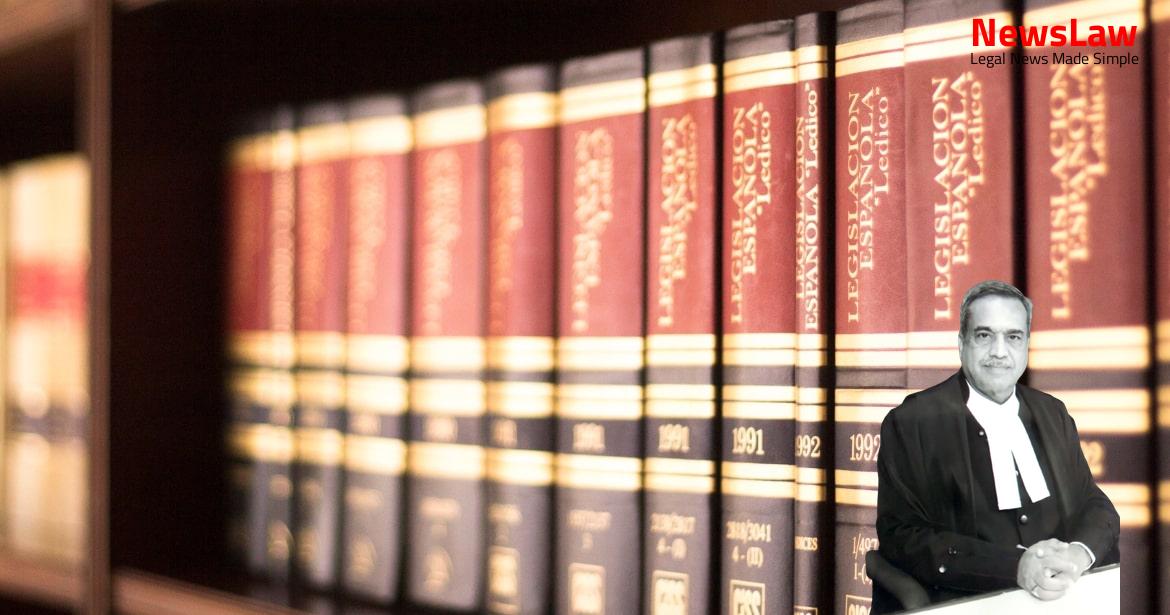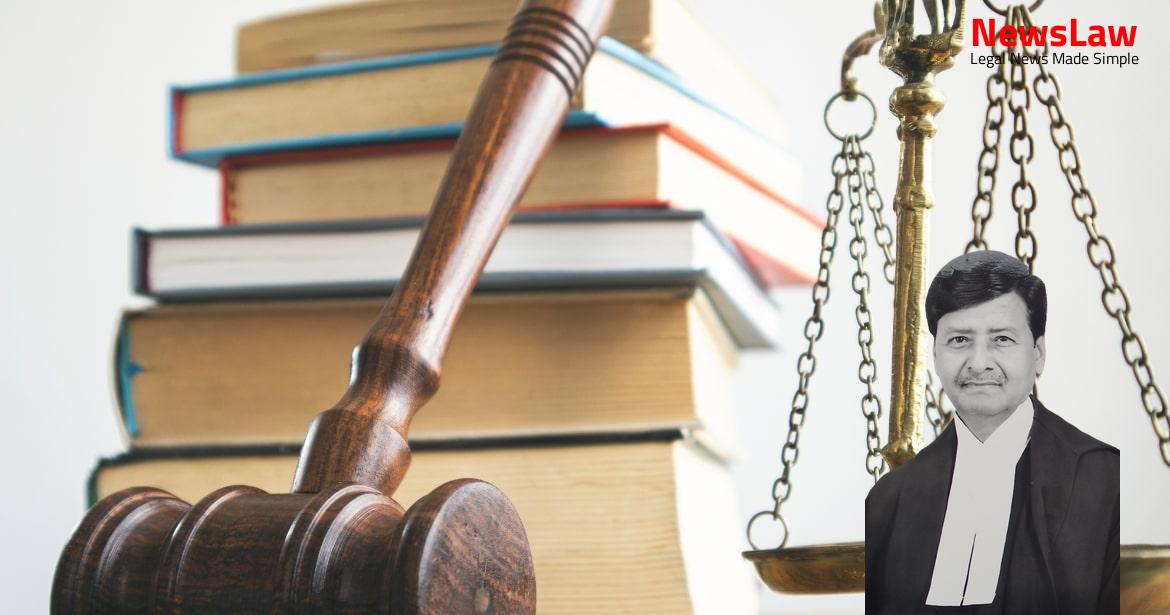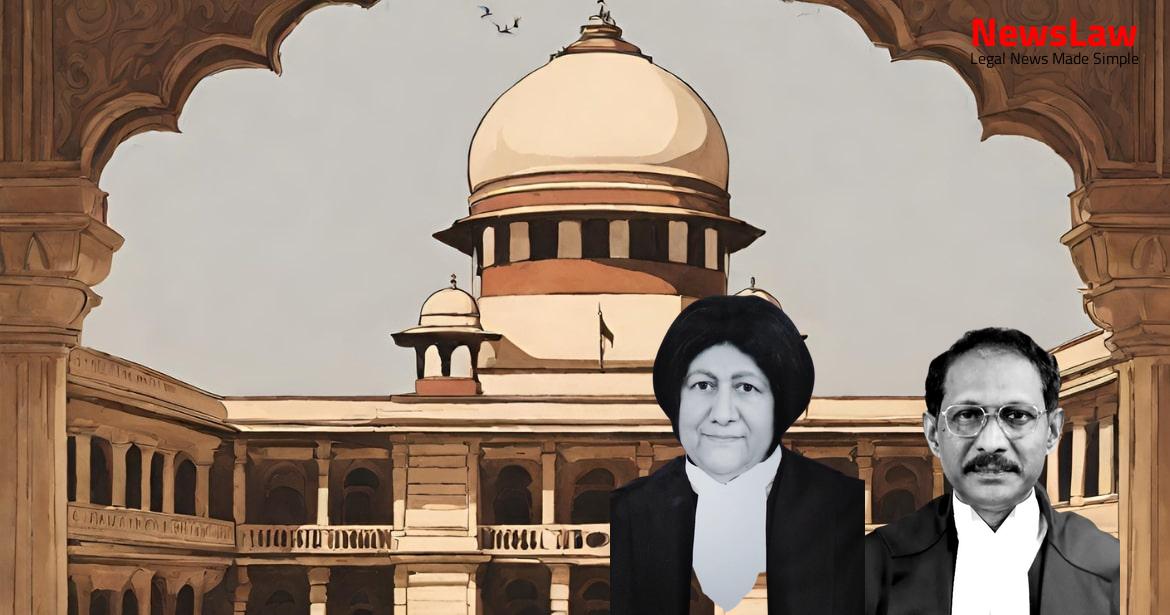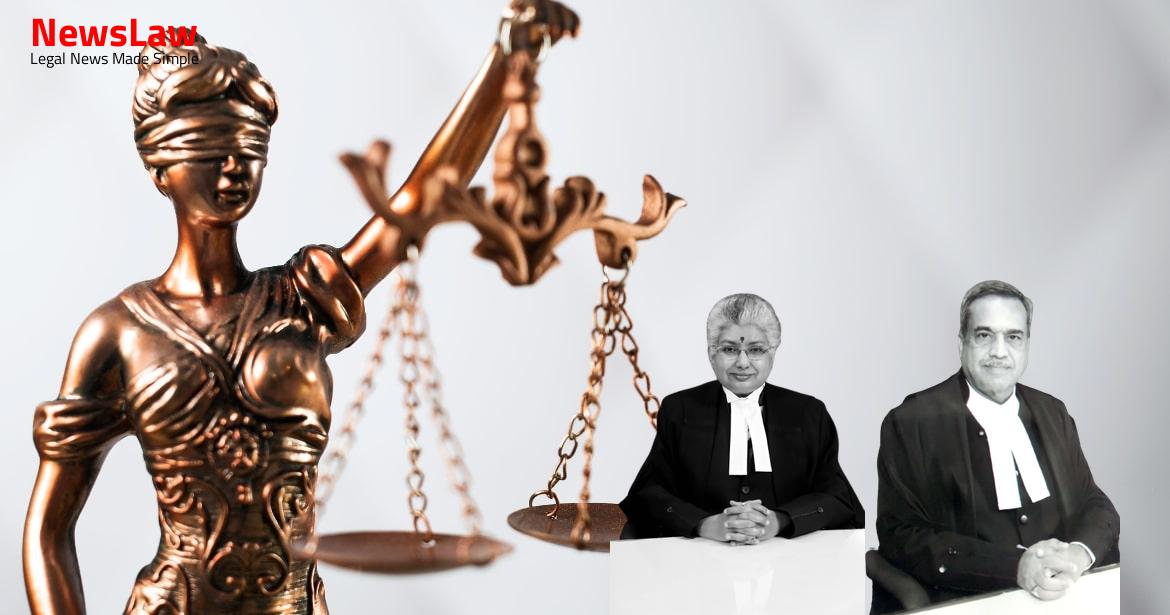Delve into the detailed analysis conducted by the High Court in bail orders for a complex case involving multiple accused and five deaths. The court’s scrutiny of factors such as severity of the offenses, presence of accused individuals with weapons, and victim’s rights highlights the importance of thorough legal reasoning in bail decisions. Follow the discussion on the court’s application of judicial mind and significance of recording detailed reasons, setting a precedent for future legal proceedings.
Facts
- The accused did not appear in two Special Leave Petitions despite notice, so Mr. Nikhil Goel was requested to represent them.
- After lockdown, a quarrel arose between Akhabhai and the informant due to refusal of fields for cultivation.
- A cross FIR was registered, and the incident leading to five murders took place in village Hamirpur.
- Bail was granted to several accused based on previous orders, and attempts to run away from the scene led to witnessing the murders.
- Post-mortem conducted on 10th May 2020, and details of the incident with the involvement of various accused were recorded in FIRs and cross FIRs.
- The appeal hearings were consolidated, and legal representatives appeared for the informant in the appeals.
- Details of the FIR registration and recovery of weapons mentioned in the proceedings, along with arrests and bail applications of the accused.
- Ultimately, Mr. Aniruddha P Mayee entered appearance on behalf of the State of Gujarat following a notice issued on 5th February 2021.
- The orders granting bail to A-10, A-15, A-16, and A-17 were based on parity.
- The first bail granted by the High Court was to Sidhdhrajsinh Bhagubha Vaghela (A-13) on 22 October 2020.
- A-6 attempted to obtain bail on medical grounds using a false identity.
- The complicity, intent, presence, and role of the accused are supported by the cross FIR.
- The High Court cited the decision of the Court in Sanjay Chandra v. Central Bureau of Investigation for the bail orders.
- A-16 was in jail since 19 May 2020, the charge-sheet had been filed post-investigation, and the trial with 110 witnesses was expected to take time.
Also Read: Electoral Malpractices in Mayor Election
Arguments
- Mr Vinay Navare, learned Senior Counsel representing the appellant, argues that the first bail was granted based on changes in the informant’s statement recorded on 3 June 2020, altering the incident’s genesis and weapon details.
- Mr Nikhil Goel, Counsel for the accused, supports the bail granted by the High Court citing various justifications, including the involvement of multiple accused, injuries sustained by both sides, and alterations in the version of events between the FIR and subsequent statements.
- The defense emphasizes the presence of accused at the incident, pre-meditated actions, and the severity of the assault resulting in five deaths as reasons to deny bail.
- The defense questions the validity of the bail orders granted in October and December 2020, pointing out the lack of detailed reasoning and justification provided by the High Court.
- The nature of the incident is said to have been significantly altered in the statement recorded on 3 June 2020, with emphasis on the shift from gunshot injuries to injuries caused by sharp weapons.
- The defense stresses that the cross FIR filed by one of the accused supports their version of events, highlighting premeditation on the part of the accused and aggression towards the deceased.
- The State of Gujarat, through its Counsel, supported the appellant’s challenge to the orders granting bail.
- The main accused, Vishan, had a history with the deceased Akhabhai and a compromise had been reached earlier.
- It was argued that the accused were ‘over implicated’ in the case and some showed signs of innocence.
- The High Court’s judgment failed to address the serious nature of the offense, where five deaths occurred.
Also Read: Balancing Power and Transparency: Electoral Bonds Struck Down, Disclosure Mandated
Analysis
- Nature of the crime is a basic consideration in the grant or denial of bail.
- Criminal antecedents of the accused must be weighed for granting bail.
- Grant of bail can be set aside if based on non-application of mind or innocent of relevant factors.
- Orders granting bail to certain accused were found to suffer from perversity by the Court.
- The High Court granted bail to several accused based on the concept of parity without delving into the seriousness of the offences.
- The failure of the High Court to consider material circumstances, especially the content of the cross FIR, raises concerns about the grant of bail.
- The presence of accused individuals with weapons and their intent to assault, as detailed in the cross FIR, was a crucial aspect overlooked by the High Court.
- The High Court’s reliance on parity in granting bail without a thorough analysis of each individual’s role and the gravity of the offences was deemed erroneous.
- The Court emphasized the importance of recording reasons when granting or refusing bail, highlighting the duty to apply a judicial mind in such decisions.
- The orders by the High Court were found to be lacking in adequate reasoning, making them vulnerable to being challenged for perversity.
- The significance of the victims’ rights, the seriousness of the offences resulting in five deaths, and the gravity of the case were underscored as crucial factors to be considered in bail decisions.
Also Read: Recall of Resolution Plan Approval: Legal Analysis
Decision
- Copy of the order to be forwarded to the Sessions Judge for compliance
- Orders of the High Court set aside for the accused listed
- Accused directed to surrender forthwith
Case Title: RAMESH BHAVAN RATHOD Vs. VISHANBHAI HIRABHAI MAKWANA MAKWANA (KOLI) (2021 INSC 265)
Case Number: Crl.A. No.-000422-000422 / 2021



